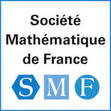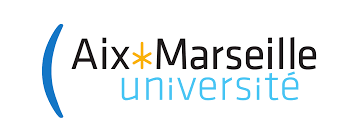Inhomogeneous Flows: Asymptotic Models and Interfaces Evolution
Fluides inhomogènes: modèles asymptotiques et évolution d’interfaces
23 – 27 September 2019
|
Scientific Committee
Comité scientifique Anne Laure Dalibard (Sorbonne Université) |
Organizing Committee
Comité d’organisation Frédéric Charve (Université Paris-Est Créteil) |
|
This conference is part of the ”Semaines CIRM-SMF” program and is dedicated to the mathematical analysis of non homogeneous models of fluid mechanics.
This project of conference follows the themes of the ANR-15-CE40-0011 INFAMIE. It has for vocation to bring together internationally recognized experts of every continents coming from various branches of mathematical fluid dynamics and young researchers being interested in the fluid mechanics and, more particularly, in the evolution of inhomogeneous fluids where problems of interfaces occur. The PDEs modelling mixtures and the nonhomogeneous fluids arise naturally in numerous applications linked to the industry, the biology and the environment : distribution of pollutants, problems of sedimentation, etc. One of the major difficulties both from numerical and theoretical viewpoints is the evolution of a fluid presenting a jump of density along a curve of the plan or along a surface of the space (it can be seen as a toy model for a mixture of two fluids). This kind of problem can be tackled by two approaches almost orthogonal : technics of type ” free boundaries ” where we focus on the equation governing the evolution of the interface, or ”the global” approach consisting in solving the equation on all the domain, but in a functional setting containing discontinuous functions along an interface. This conference will be the opportunity to make the state of the art on this subject which knew a considerable development since about fifteen years. Very diverse techniques were used going of simple estimates of energy to the analysis of Fourier (decomposition of Littlewood- Paley in particular) and to the theory of the analytical semi-groups and the maximal regularity. We hope that this conference will allow to present without taboo the tools of analysis coming into play in the study of the EDP (such as the equations of incompressible Navier-Stokes with variable density, or compressible Navier Stokes, the equations of Korteweg, Euler-Korteweg, etc.) modeling the nonhomogeneous fluids, and to propose new angles of attack. Three mini-courses of 4 1/2 hours, and eighteen 40 minutes presentations by junior and senior researchers are scheduled. The conference will be more widely opened to another thirty participants that are interested in the theme, but do not wish to give a talk. – A first mini-course given by Peer Christian Kunstmann (Karlsruhe university) will propose a panorama of the theory of the semi-groups and the properties of maximal regularity for the equations of parabolic type. Accommodation and full board is offered to all participants. |
Cette conférence s’inscrit dans le cadre des “semaines CIRM-SMF” et est dédiée à l’analyse mathématique de modèles de mécanique des fluides non homogènes.
Ce projet de conférence s’inscrit dans les thématiques de l’ANR-15-CE40-0011 INFAMIE. Il a pour vocation de réunir des experts reconnus internationalement de tous les continents, issus de différentes écoles mathématiques, et des jeunes chercheurs s’intéressant à la mécanique des fluides et, plus particulièrement, à l’évolution de fluides inhomogènes faisant intervenir des problèmes d’interfaces. Les EDP modélisant les mélanges et les fluides non homogènes interviennent naturellement dans de nombreuses applications liées à l’industrie, la biologie et l’environnement : propagation de polluants, problèmes de sédimentation, etc. Une des difficultés majeures tant d’un point de vue numérique que d’un point de vue théorique est celle de l’évolution d’un fluide présentant un saut de densité le long d’une courbe du plan ou d’une surface de l’espace (cela peut être vu comme un modèle jouet pour un mélange de deux fluides). Ce genre de problème peut être abordé par deux approches presque orthogonales : techniques de type “frontières libres” où l’on se concentre sur l’équation régissant l’évolution de l’interface, ou approche “globale” consistant à résoudre l’équation sur tout le domaine du mélange de fluides, mais dans un espace fonctionnel contenant les fonctions discontinues le long d’une interface. Cette conférence sera l’occasion de faire l’état de l’art sur ce sujet qui a connu un essor considérable depuis une quinzaine d’années. Des techniques très diverses ont été utilisées allant de simples estimations d’énergie à l’analyse de Fourier (décomposition de Littlewood- Paley notamment) et à la théorie des semi-groupes analytiques et régularité maximale. Nous comptons sur cette conférence pour présenter sans tabou les outils d’analyse entrant en jeu dans l’étude des EDP (telles que les équations de Navier-Stokes incompressible à densité variable, ou de Navier Stokes compressible, les équations de Korteweg, Euler-Korteweg, etc.) modélisant les fluides non homogènes, et proposer de nouveaux angles d’attaque. La conférence comporte trois mini-cours de 4 1/2 heures, et dix-huit exposés de 40 minutes donnés par des chercheurs juniors ou seniors. La conférence sera ouverte plus largement à une trentaine de participants supplémentaires intéressés par la thématique, mais ne souhaitant pas donner d’exposé. – Un premier mini-cours donné par Peer Christian Kunstmann (Université de Karlsruhe) dressera un panorama de la théorie des semi-groupes et des propriétés de régularité maximale pour les équations de type parabolique. Le séjour en pension complète est offert à tous les participants. |
Corentin Audiard (Sorbonne université) Multiple traveling waves of the Euler-Korteweg system
Noboru Chikami (Osaka University) Remarks on Gagliardo-Nirenberg type inequalities in Fourier-Herz spaces
Dorothée Frey (Delft University of Technology) Fixed-time L^p estimates for wave equations with low regularity coefficients
Francisco Gancedo (Université de Séville) On the local existence and nite time blow-up for Surface Quasi-geostrophic sharp fronts
Sergey Gavrilyuk (Aix-Marseille Université) Modeling of multi-phase flows via Hamilton’s principle
David Gérard-Varet (Université Paris-Diderot) Analysis of the effective viscosity of dilute suspensions
Jan Giesselmann (Technical University of Darmstadt) Relative entropy for the Euler-Korteweg system with non-monotone pressure
Peer Christian Kunstmann (Karlsruhe Institute of Technology) Around maximal regularity for Navier-Stokes equations
Omar Lazar (American University of the Middle-East) On the Cauchy problem for the Muskat Equation
Benjamin Mélinand (Université Paris-Dauphine) Coriolis effect on water waves close to equator or close to the poles
Piotr Mucha (Université de Varsovie) Compressible flow initiated by a characteristic function
Charlotte Perrin (Université d’Aix-Marseille) Existence and stability of partially congested fronts
Yoshihiro Shibata (Waseda University, Tokyo) On the R-solver and periodic solutions of the Navier-Stokes equations
Patrick Tolksdorf (Université Paris-Est Créteil) Da Prato and Grisvard meet global Lagrangian coordinates
Ewelina Zatorska (University College, London) Finite-energy solutions for compressible Euler and Navier-Stokes with nonlocal forces
Xin Zhang (Waseda University, Tokyo) On the solvability of some two-phase inhomogeneous incompressible flow with free interfaces










